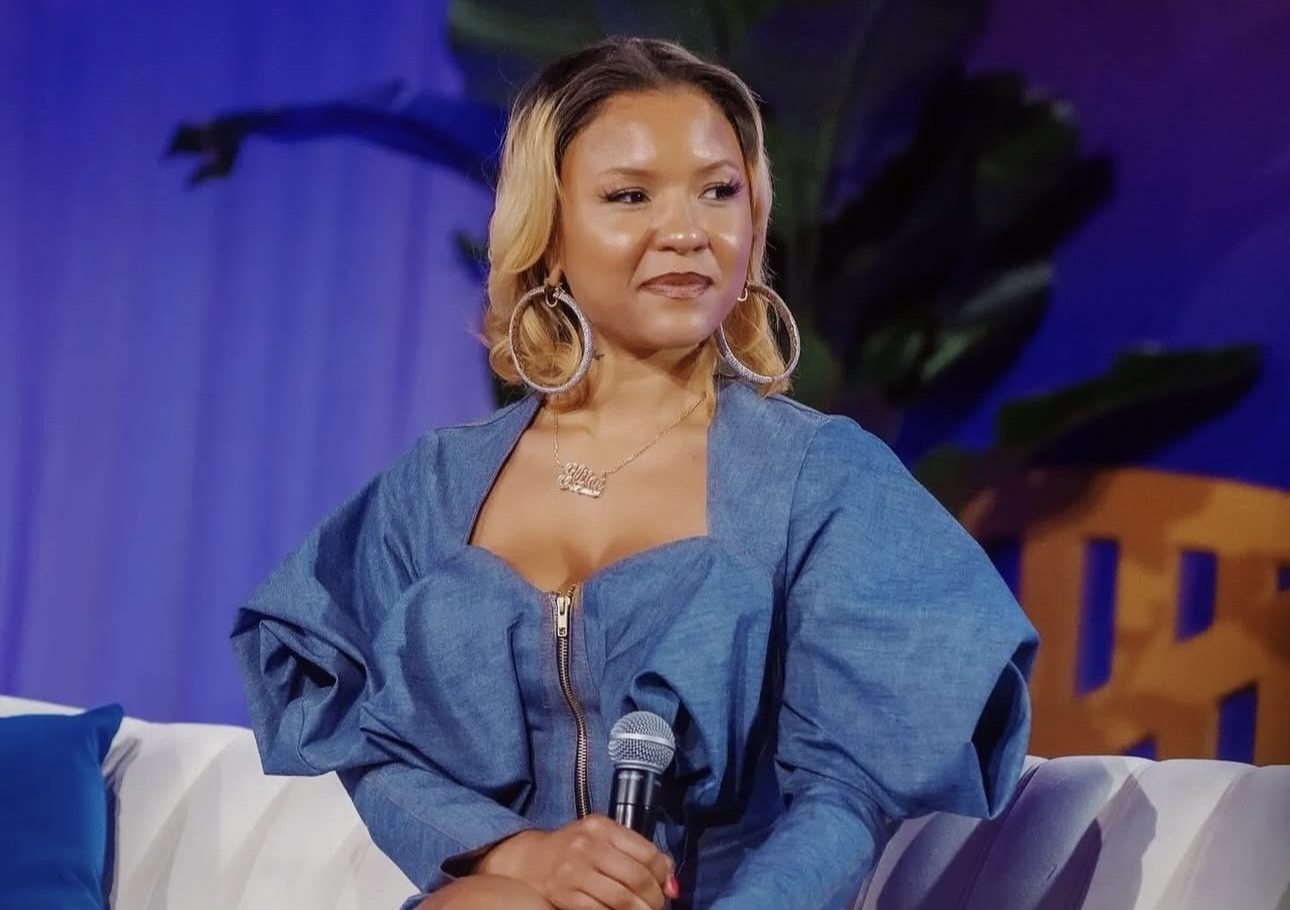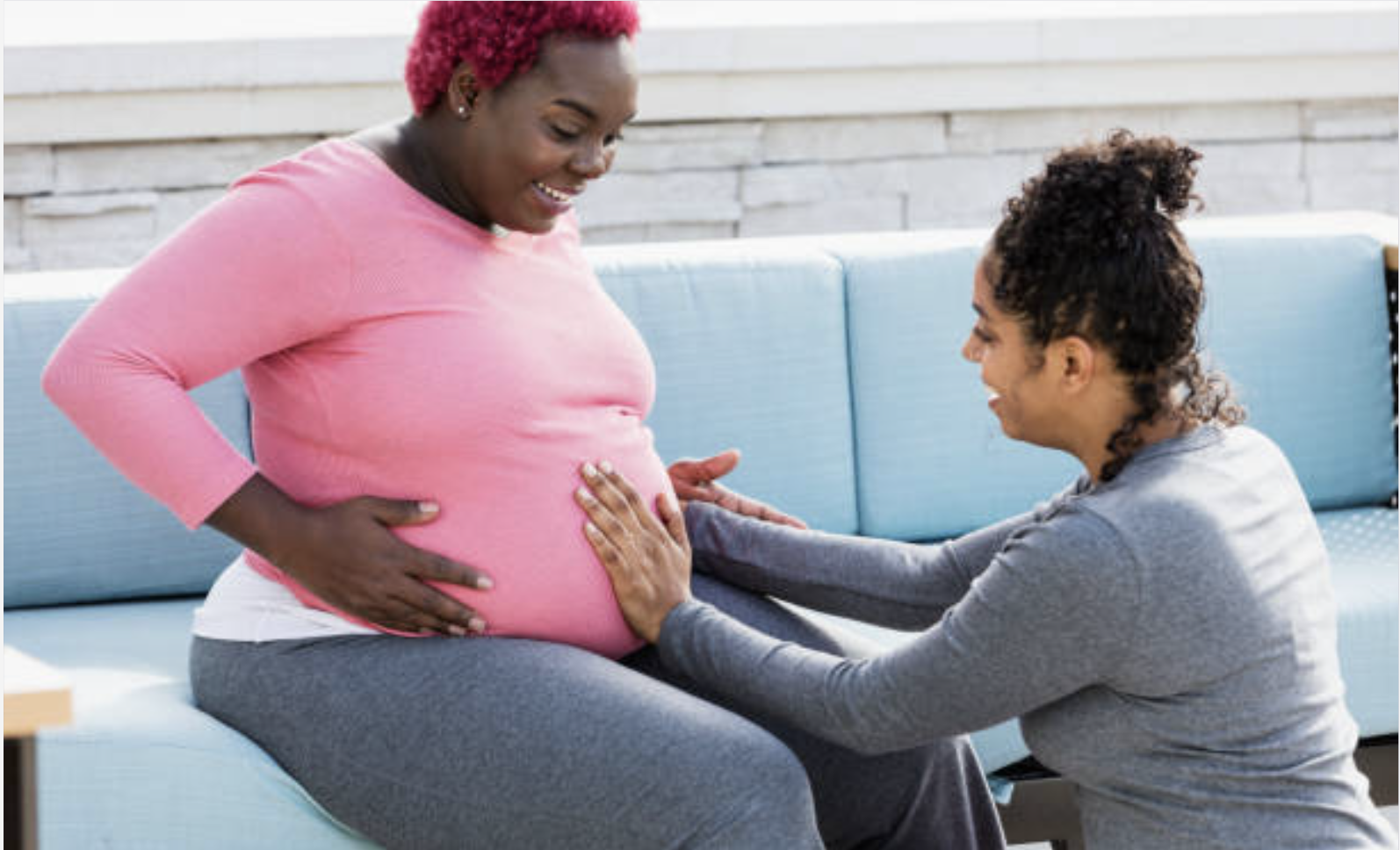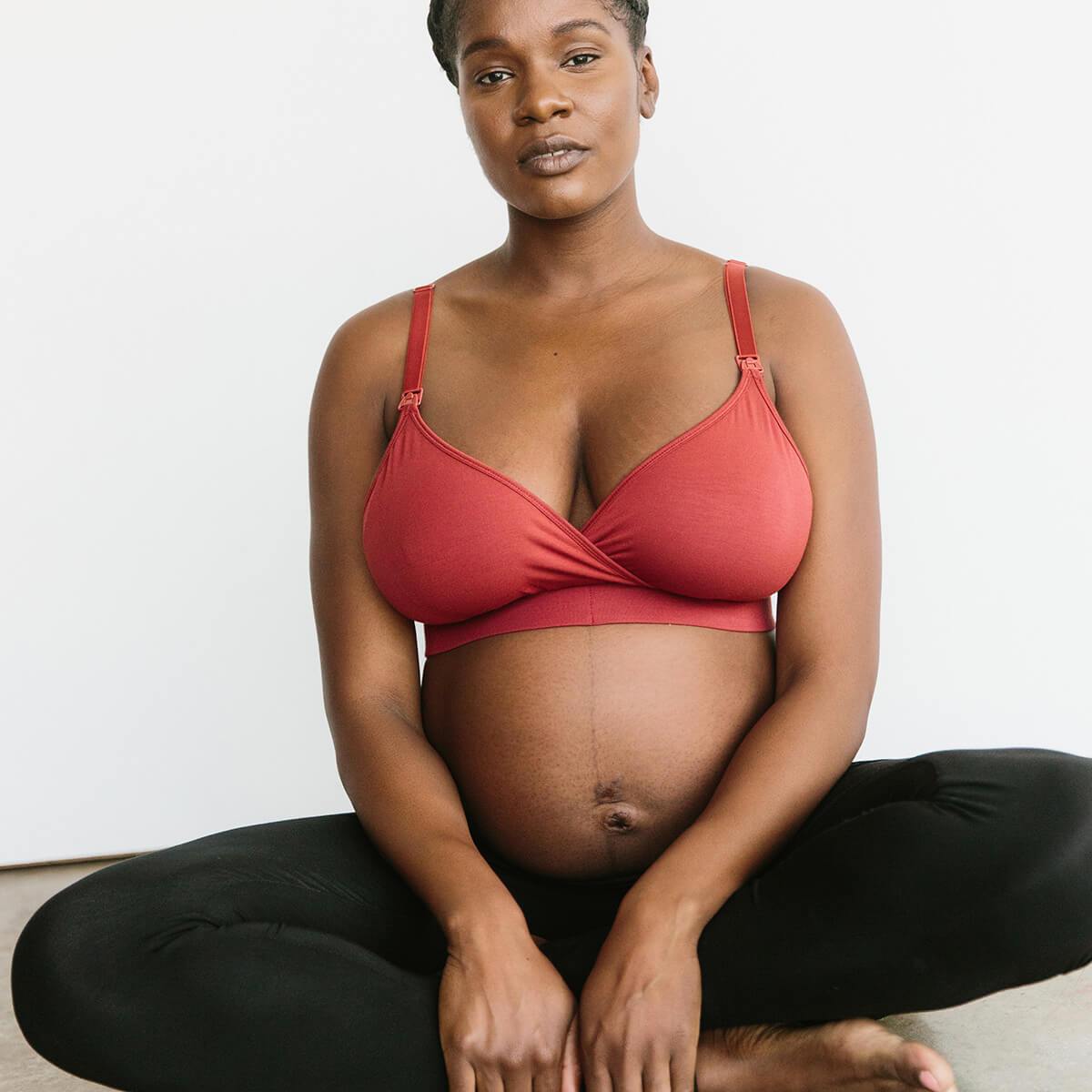Black Maternal Health Week: Madison Star Brim On Work As Doula
Black Maternal Health Week: Misa Hylton’s Daughter Madison Star Brim on Music, Style, And Saving Black Lives As A Doula [Exclusive]

Sometimes, walking in your purpose doesn’t mean committing to one thing. For the force that is Madison Star Brim, whether it’s fashion, music, or her work as a doula to help expecting mothers and birthing people bring new life into the world, all of the makings of who she is pour into one another.
Brim, 26, stems from a creative family, so getting bitten by the creativity bug was inevitable. Her mother, Misa Hylton, carved out a lane for herself in the fashion industry, using her work as a stylist for some of the hottest names in the game, including Mary J. Blige, Jodeci, and Lil’ Kim to name a few, and ultimately helping to revolutionize the impact that hip-hop has on the way that we dress that is still very evident through the artists of today. Her father, JoJo Brim, was a founding member of the rap group FS Effect and went on to produce records for big imprints like Uptown Records, Def Jam, Motown, Island Records, and more.
A graduate of Howard University, Brim may have followed in both of her parents’ footsteps in several ways. She helms her fashion line, Madison Star Couture, and has used rapping as a storytelling avenue through tracks like “Work Daughta” and “I Like.” Still, when she isn’t honing in on her creativity through those avenues, she’s helping others on their journey to creating life.
RELATED CONTENT: Misa Hylton Speaks Up Against ‘Militarized Force Used’ Against Her Sons In Diddy’s Mansion Raid
“I’m really intentional about creating the time to do it,” Brim told MadameNoire backstage at the 2025 Dreamville Festival when asked how she can give 100% to the various hats she wears. She attended the annual North Carolina event to support her brother, Niko Brim, who opened the festival weekend alongside their cousin and fellow emcee Kai Ca$h.
“I don’t look to distract myself from what truly matters to me and what I feel God put me on this Earth to do. So I try to limit out all the distractions, to create enough time to fulfill myself in those ways, and then those things also pour into each other,” she continued.
“And I don’t know if people recognize that. They think, oh, you’re giving to this, to that, but really, they all give to me. They all pour into me. They allow me to grow as a person, as a woman, and I’m able to take something that I learned from maybe dealing with a mother and a developing family and apply that to my music and the message that I want young women to hear as they’re on their journey. I’m able to think of fashion that fits all sizes. It’s really an ebb and flow, and I think life is that. It’s just allowing God to use me, being the vessel, and recognizing that it’s not me, really. It’s what God is calling out of me, through me, to do,” Brim said.
In observation of Black Maternal Health Week, the week-long campaign founded and led by the Black Mamas Matter Alliance to “build awareness, activism, and community-building to amplify the voices, perspectives and lived experiences of Black Mamas and birthing people,” we spoke with Brim about how she’s empowered through her work as a doula.
RELATED CONTENT: Alliance for Black Doulas for Black Mamas Graduates 9 Black Doulas
What Is A Doula?
“Doulas are non-medical support professionals who provide information, education, and resources for birthing people,” Brim explained. “They act as liaisons between medical professionals and birthing people to ensure they receive informed and comprehensive care.”
She added, “Doulas are already shifting the narrative of empowered birthing experiences, although it is difficult to measure the number of successful birth outcomes based upon various determining factors, as per the National Institute of Health, expectant mothers matched with doulas had better birth outcomes. Doula-assisted mothers were four times less likely to experience low birthing weight and are two times less likely to experience a birthing complication involving themselves or their baby.”
Moreover, thanks to legislation passed in states like Brim’s hometown of New York (Mount Vernon, to be exact), New Jersey, Oregon, and Minnesota, doula services are now covered by Medicaid. She notes that this is a “big win” for the mothers and birthing people who live there.
“I hope that in the future, all women and birthing people will have access to support professionals who can provide them with the best care for their birthing experience,” said Brim.

How Has Your Work As A Doula Reaffirmed Your Purpose In The Space, And What Have You Learned About Yourself In The Process?
“I can honestly say that I feel reaffirmed in my purpose in this space every time I bring a baby earthside successfully and safely,” said the “914 Forever” emcee. “When the mothers and birthing people I work with speak to my impact on their feelings of safety, I feel filled with humility and gratitude, knowing that I am just a vessel of support and protection as they prepare for the next phase of the transformative journey that is motherhood.”
Brim blends tradition and innovation in her approach to birth work, particularly for Black birthing people, saying it’s all an “ebb and flow.”
“Each mother and client is different, and the best approach is to listen to and support them to the best of my ability,” she said. “What would now be considered ‘innovation’ are holistic approaches that are often ignored during a heavily medicated birth. A good balance is needed between the knowledge of medical professionals and the wisdom that a woman’s body naturally provides through her birthing experience. If life-saving interventions are needed, then those measures should be taken; if not, I believe it’s important to honor the body’s process and not rush through such a sacred experience.”

Where Do We Go From Here? Are There Support Systems Or Changes That Are Needed To Protect And Uplift Black Mothers During Pregnancy And Postpartum?
“If we look at birth and motherhood as an isolated experience, we will miss so many other factors that impact the pregnancy and postpartum journey,” said Brim. “There are many outlying variables to consider, such as socio-economic opportunities and resources, education, and generational trauma (spiritual and medical). From our arrival into this country, there has been an attack on Black motherhood and the Black family, and those attacks are compounded on all sides, not just in the medical field.”
She continued, “I believe we need to get back to community-focused care. It truly takes a village, and we need to get back to prioritizing our villages—our mothers and children, our fathers, and our grandparents. We need to honor them and not just with our support and respect for them but in the ways that we treat each other with our actions, our words, and how we show up for one another. Oftentimes, mothers are isolated and disregarded in our community.
“We treat their needs as a nuisance and regard crying babies as annoying and disruptive. While I understand the normalcy of human emotions, I’m hoping that as a community, we can tap into more grace, empathy, and understanding for our mothers. That lack of empathy not only impacts them in their communities, but it first starts in the way they are often disregarded in hospital rooms. They are treated like they have super-human strength, and their concerns are often ignored by medical care providers who are dismissive toward them. The truth is, we are all doing our best with the resources and knowledge that we have. However, we are stronger together than we are apart,” Brim concluded.
“If we come together as a collaborative force within our community, there is nothing that we cannot do. The key is to stop ‘othering’ each other for our differences—whether it’s parenthood or the origins of our Blackness across the diaspora, unity is needed now more than ever.”
RELATED CONTENT: Black Maternal Health Week: Why Doulas Are Worth The Dollars In The Fight Against Maternal Mortality Among Black Women







